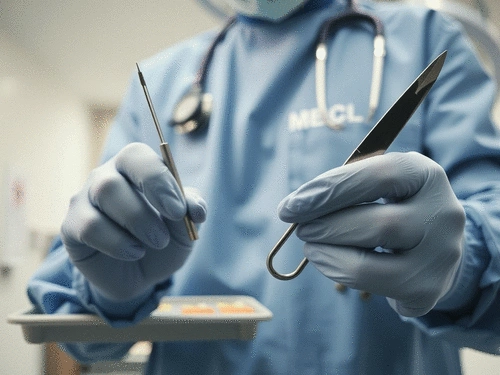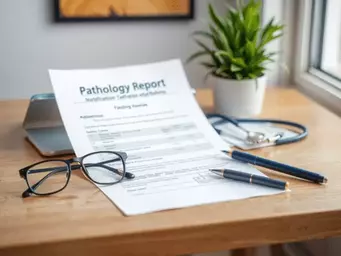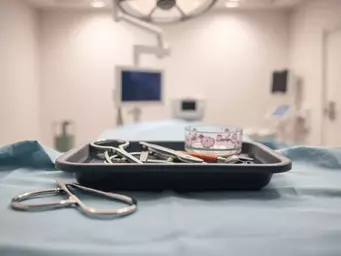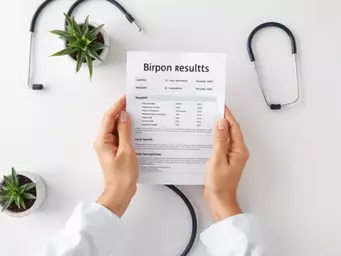Have you ever considered how a small tissue sample can unlock vital insights into your health? Understanding biopsy procedures can transform anxiety into confidence, paving the way for informed decisions about your treatment options.
What You Will Learn
- A biopsy is a crucial medical procedure that helps diagnose diseases, particularly cancer, by examining tissue samples.
- Various biopsy types include needle biopsies, surgical biopsies, and skin biopsies, each designed for specific diagnostic needs.
- Understanding your biopsy can help alleviate anxiety and empower you to take charge of your health decisions.
- Effective communication with your healthcare provider is essential for discussing the best biopsy type and addressing any concerns.
Biopsy Procedures Overview: Key Types and Their Purpose
This visual summarizes the main types of biopsy procedures and their primary applications, highlighting how each method contributes to diagnostic clarity.
Needle Biopsy
Includes fine needle aspiration and core needle biopsies. Often used for tissues in areas like breast or thyroid.
Surgical Biopsy
Excisional (entire lump) or incisional (portion of lump). Used when a larger sample is required for diagnosis.
Skin Biopsy
Techniques like shave or punch biopsies. Commonly used for examining skin lesions and abnormalities.
Overall Biopsy Goals
- Confirm diagnosis (e.g., cancer).
- Determine disease type/stage.
- Monitor treatment efficacy.
Understanding Biopsy Procedures: An Overview
When it comes to understanding your health, biopsy procedures play a crucial role. But what exactly is a biopsy, and why is it so important? Simply put, a biopsy is a medical procedure used to remove a piece of tissue for examination. This examination helps doctors diagnose diseases, especially cancer. By providing a clearer picture of what’s happening in your body, biopsies empower both patients and healthcare professionals to make informed decisions about treatment options, as detailed by the Mayo Clinic.
Many people may feel anxious when they hear the term "biopsy." This is entirely natural! However, knowing that these procedures are designed to gather essential information can help ease some of that anxiety. At What Is A Biopsy, we believe that empowering patients with knowledge can turn fear into confidence. Remember, a biopsy is often a small step toward receiving big answers about your health.
What is a Biopsy and Why is it Done?
A biopsy is performed for various reasons, including diagnosing suspicious lumps or masses, determining the stage of a disease, and monitoring treatment effectiveness. The information gathered from a biopsy can help pinpoint whether a growth is benign or malignant, thus guiding treatment choices, as explained by the American Cancer Society.
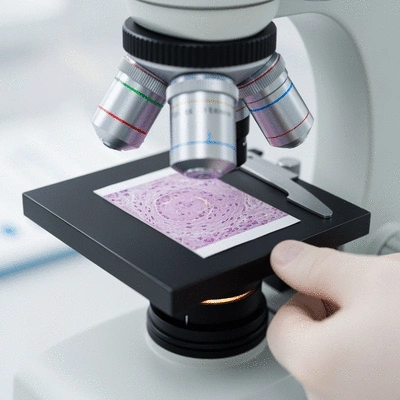
- To confirm a diagnosis, such as cancer.
- To determine the type of disease present.
- To monitor the effectiveness of ongoing treatment.
- To gather information about inflammation or infection.
Understanding these reasons highlights the biopsy's importance in the broader context of healthcare. It's about more than just taking a sample; it’s about gaining insights that can shape your treatment path!
Types of Biopsies: A Comprehensive Breakdown
There are several types of biopsies, each serving a unique purpose depending on the area being examined and the suspected condition. Here’s a brief overview of the main types:
- Needle Biopsy: This includes fine needle aspiration and core needle biopsies, often used to sample tissues in areas like the breast or thyroid.
- Surgical Biopsy: This can be either excisional (removing an entire lump) or incisional (removing a portion of a lump), typically used when a larger sample is needed.
- Skin Biopsy: Techniques like shave or punch biopsies are commonly used to examine skin lesions.
Each type of biopsy has its specific indications and methods, but all of them aim to provide accurate diagnostic information. By learning about the different kinds, you can better understand what to expect during your own biopsy experience. For a deeper dive into the various types and their clinical applications, consult resources like the National Center for Biotechnology Information (NCBI).
Frequently Asked Questions About Biopsy Procedures
What is a biopsy?
A biopsy is a medical procedure that involves removing a small piece of tissue from the body for examination under a microscope. Its primary purpose is to diagnose diseases, especially cancer, and to determine the nature of suspicious growths.
Why is a biopsy performed?
Biopsies are performed for several reasons, including confirming a diagnosis (like cancer), determining the type and stage of a disease, monitoring the effectiveness of ongoing treatments, and investigating inflammation or infections.
What are the main types of biopsies?
The main types include needle biopsies (fine needle aspiration, core needle biopsy), surgical biopsies (excisional, incisional), and skin biopsies (shave, punch). Each type is chosen based on the location of the tissue and the diagnostic needs.
Is a biopsy always indicative of cancer?
No, a biopsy is not always indicative of cancer. While it is a primary tool for cancer diagnosis, it can also differentiate between benign (non-cancerous) and malignant (cancerous) conditions, or diagnose other issues like infections or inflammatory diseases.
What should I discuss with my healthcare provider before a biopsy?
Before a biopsy, you should discuss the specific type of biopsy recommended for your situation, any preparation instructions, expected recovery times and aftercare, and potential risks associated with the procedure. This ensures you are well-informed and prepared.
We Want to Hear From You!
What concerns or questions do you have about biopsy procedures? Share your thoughts below:
Final Thoughts on Biopsy Procedures
As we've explored throughout this article, biopsy procedures play a crucial role in medical diagnostics. They help us gather essential information about various conditions, allowing healthcare providers to make informed decisions about your treatment. From the different types of biopsies, such as needle, surgical, and skin biopsies, to the specific techniques like fine needle aspiration and excisional biopsies, each method has its own unique attributes and applications.

It's important to remember that while the term "biopsy" can sound intimidating, these procedures are designed with your well-being in mind. They provide a pathway to clarity about your health and can serve as a vital step toward effective treatment. With the knowledge we've shared, I hope you're feeling more empowered to understand your options!
Encouragement to Discuss with Healthcare Providers
If you have more questions or need personalized advice regarding biopsy procedures, I encourage you to reach out to your healthcare provider. They can offer tailored information based on your individual health needs and help alleviate any concerns you may have. Here are a few key points you might want to discuss:
- Specific type of biopsy best suited for your situation
- Detailed preparation instructions to ensure a smooth process
- Expected recovery times and aftercare tips
- Any potential risks associated with the procedure
Remember, being well-informed can make a significant difference in how you approach your health journey. So, don’t hesitate to ask questions and seek the clarity you deserve! Your health is a priority, and understanding the role of biopsies is an important step in advocating for yourself.
Recap of Key Points
Here is a quick recap of the important points discussed in the article:
- A biopsy is a medical procedure that involves removing tissue for examination, crucial for diagnosing diseases like cancer.
- Biopsies are performed to confirm diagnoses, determine disease types, monitor treatment effectiveness, and gather information about infections or inflammation.
- Types of biopsies include needle biopsies, surgical biopsies, and skin biopsies, each with specific purposes and techniques.
- Understanding the biopsy process can help alleviate anxiety and empower patients to make informed health decisions.
- Always discuss any concerns regarding biopsies with your healthcare provider to receive personalized advice and support.

